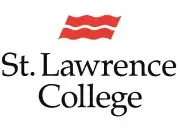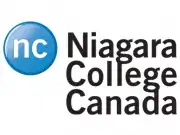Transport and Logistics Programs in Canada for International Students
- Advantages of Studying Transport and Logistics in Canada
- Formats and Levels of Transport and Logistics Programs in Canada
- Top Universities for Transport and Logistics in Canada
- Additional Institutions for Transport and Logistics in Canada
- How to Apply for Transport and Logistics Programs in Canada
- Tuition Fees for Transport and Logistics Programs in Canada
- Scholarships and Grants for Transport and Logistics Programs in Canada
- Career Prospects After Transport and Logistics Programs in Canada
- Is It Worth Studying Transport and Logistics Programs in Canada
- Frequently Asked Questions

Certificate - Supply Chain Management
St. Lawrence College, CanadaAbout 767,000 people in a wide variety of jobs and businesses make up Canada's supply chain, making it one of the country's most vital economic pillars. Whether or not this industry is able to successfully address its human resources and labor-market issues will have a significant impact on Canada's…

Certificate - Flight Services
Seneca College of Applied Arts and TechnologyGain an edge in the airline business with this eight-month Flight Services certificate program. Safety and emergency procedures, both on the ground and in the air, are just two of the many topics covered in this class. You will acquire the education, experience, and maturity necessary for a successful…

Diploma - International Transportation & Customs
Seneca College of Applied Arts and TechnologyThis two-year diploma program will give you a thorough grounding in the theory and practice of foreign shipping, customs brokerage, and freight forwarding.
You will learn valuable skills and information that businesses can use to better manage the international flow of goods and services…

Certificate - Supply Chain Management (Global Logistics)
Seneca College of Applied Arts and TechnologyExperts in the field of supply chain management are in greater demand than ever.
In addition to the knowledge and skills you need to get started in the field of supply chain management, this eight-month graduate certificate program will equip you with the technological and analytical know-how…

Post-Baccalaureate Diploma - Supply Chain Management
Cape Breton UniversityThe supply chain is one of the most important economic sectors in Canada, employing over 767,000 people from a variety of occupations and industries. The newly devised courses at Cape Breton University cover all aspects of supply chain management from a theoretical and practical perspective.
Increasingly,…

Bachelor of Commerce (Hons) - Supply Chain Management
George Brown College of Applied Arts and TechnologyHonours Bachelor of Commerce (Supply Chain Management) students are well-prepared for a variety of rewarding careers in logistics, transportation, production management, business planning, international sourcing and procurement, and transportation and distribution. Graduates will be prepared to work…

Certificate - Supply Chain Management
George Brown College of Applied Arts and TechnologyBy providing a solid grounding in the inner workings of supply networks, the Supply Chain Management graduate certificate program can help you stand out in a number of different industries. Organizations in various sectors rely on supply chain management, which facilitates the movement of goods and…

Bachelor of Commerce - Supply Chain Management
Humber College Institute of Technology & Advanced Learning, Toronto, CanadaEarning a Bachelor of Commerce with a concentration in Supply Chain Management from Humber gives students a solid foundation in business fundamentals as well as industry-specific expertise in the field. To help you stand out in today's cutthroat global job market, we place a premium on practical experience.
An…

Certificate - Supply Chain Management
Humber College Institute of Technology & Advanced Learning, Toronto, CanadaYou'll learn the ins and outs of commercial and international supply chain management in Humber's graduate certificate program in supply chain management. A considerable need for individuals with up-to-date supply chain capabilities has resulted from significant changes in operations and technology.
Market…

Graduate Certificate - Supply Chain Management
Niagara College InternationalAre you seeking for a stimulating and fulfilling work where you may help with the administration of international supply chains?
Working in the field of supply chain management will allow you to have an impact on the distribution, manufacturing, warehousing, and acquisition of goods and…
Advantages of Studying Transport and Logistics in Canada
Canada holds leading positions among countries with developed infrastructure and sustainable transport systems, making it one of the best destinations for studying transport and logistics. Every year, thousands of international students come to Canada to receive quality education and internationally recognized diplomas in logistics and transport management.
Key advantages of studying transport and logistics in Canada:
- High demand for specialists: transport and logistics is one of Canada's strategic economic sectors, especially considering the country's vast territory;
- Modern educational programs with emphasis on practice, technology, and sustainable development;
- Opportunity to combine studies with paid internships through Co-op;
- Access to international projects and partner companies;
- High teaching standards and international recognition of Canadian diplomas;
- Multicultural and safe environment for living and studying;
- Possibility to obtain a work permit after completing the program (PGWP);
- Developed transport infrastructure including maritime, aviation, road, and rail transport;
- Wide range of programs from applied colleges to research universities.
Formats and Levels of Transport and Logistics Programs in Canada
Transport and logistics programs are available for students with different backgrounds. The choice depends on education level, career goals, and preferences.
Main program levels:
- Colleges (1-3 years) — applied diplomas and certificates with focus on practical learning and quick entry into the job market.
- Bachelor's degree (3-4 years) — fundamental education studying logistics, supply chain management, and transport infrastructure.
- Postgraduate certificates (1-2 years) — programs for students who already have higher education, allowing them to expand competencies or change specialization.
- Master's degree (1-2 years) — in-depth academic programs for those planning to work in strategic management, analytics, or scientific research in logistics.
Study formats:
- On-campus learning — at the university;
- Online or hybrid programs (for some levels);
- Co-op programs — alternating study with paid internships in companies;
- Internships and participation in research projects.
Top Universities for Transport and Logistics in Canada
| University | Program | Tuition fees (CAD/year) | QS Ranking / Comment |
|---|---|---|---|
| University of British Columbia (UBC) | Bachelor of Commerce -- Transportation & Logistics | 44 500 | QS Ranking: #34; focus on international logistics |
| University of Toronto | Master of Engineering -- Transportation Engineering | 48 000 | QS Ranking: #21; strong emphasis on transport infrastructure and innovations |
| McGill University | Bachelor of Commerce -- Global Logistics Management | 43 000 | QS Ranking: #30; combines logistics, finance, and global business |
| York University | Bachelor of Commerce -- Supply Chain & Logistics | 35 000 | QS Ranking: #114, flexible program with support for international students |
| University of Calgary | Bachelor of Science -- Transportation & Logistics | 31 000 | QS Ranking: #246, strong industry connections and Co‑op opportunities |
Additional Institutions for Transport and Logistics in Canada
| University name | Program name | Tuition fees for international students (CAD/year) | Ranking and comment |
|---|---|---|---|
| Humber College | Supply Chain Management -- Logistics Diploma | 17 500 | One of Toronto's best colleges, applied learning, high graduate employability |
| Centennial College | Transportation Operations & Logistics Diploma | 16 800 | Popular among international students, programs with practice and Co-op opportunities |
| Seneca College | Global Logistics & Supply Chain Management Graduate Certificate | 18 200 | Postgraduate program for graduates of other fields, focus on international logistics |
| St. Lawrence College | Graduate Certificate -- Supply Chain Management | 18 200 | Applied certificate, includes field practical training |
| George Brown College | Advanced Diploma -- Supply Chain & Operations Management | 17 925 | 3-year program, extensive Co‑op, market statistics |
How to Apply for Transport and Logistics Programs in Canada
- Choose education level, institution, and program (college, bachelor's, master's)
- Submit application through university website or centralized platforms (for colleges — through OCAS or ApplyBoard).
- Prepare and submit documents:
- High school diploma/previous education diploma or academic transcript;
- English language certificate: IELTS (6.0+), TOEFL (80+), Duolingo (105+) — exact requirements depend on program;
- Motivation letter;
- Recommendation letters (if requested);
- Resume/CV (for postgraduate programs).
- Additional exams:
- SAT or ACT — for bachelor's;
- GRE or GMAT — for master's (in some cases).
- Admission interview — possible for popular programs (when necessary, but mainly for master's).
- Receive admission results.
- Apply for student visa and prepare for relocation.
Special requirements: transport programs may require confirmation of mathematical preparation, while engineering programs may require relevant subjects.
Tuition Fees for Transport and Logistics Programs in Canada
Program cost range:
- Colleges — from 16,500 to 18,500 CAD per year;
- Bachelor's — from 30,000 to 45,000 CAD per year;
- Postgraduate programs — from 17,000 to 20,000 CAD per year;
- Master's — from 35,000 to 48,000 CAD per year.
Additional expenses:
- Accommodation: 8,000 — 15,000 CAD per year;
- Food: 3,000 — 6,000 CAD per year;
- Transport: 1,000 — 2,000 CAD per year;
- Health insurance: 600 — 1,200 CAD per year;
- Study materials: 500 — 1,500 CAD per year.
International students are advised to consider all expenses when planning their budget.
Scholarships and Grants for Transport and Logistics Programs in Canada
Academic scholarships:
- International Entrance Scholarship (University of Toronto);
- Outstanding International Student Award (UBC).
Financial aid:
- Need-Based Financial Aid (McGill University) — assistance based on family income.
Motivation and personal achievement scholarships:
- Global Leader of Tomorrow Award (York University) — considers achievements and leadership qualities.
University grants:
- President's International Scholarship (University of Calgary).
Assistant and research positions:
- Available for master's students, allow combining study with work, earning additional income.
Important: application deadlines — from October to March, exact dates depend on specific university.
Career Prospects After Transport and Logistics Programs in Canada
The transport and logistics sector is actively developing, especially with trade globalization. Graduates of Canadian programs are in demand both in Canada and abroad.
Popular professions:
- Logistics and supply chain specialist;
- International transport coordinator;
- Warehouse and transport logistics manager;
- Logistics process optimization specialist;
- Transport systems analyst.
Examples of companies employing graduates:
- CN (Canadian National Railway);
- FedEx Canada;
- DHL Supply Chain;
- Amazon Logistics;
- Government of Canada;
- Air Canada (logistics department);
- Freight forwarding and transport companies.
Co-op internships and practical training provide competitive advantage in employment.
Is It Worth Studying Transport and Logistics Programs in Canada
Studying in Canada is an opportunity to receive quality education with international recognition, practical skills, and employment prospects.
Key benefits:
- High demand for the profession;
- Canadian diploma — competitive advantage in global market;
- Access to Co-op and internships;
- High quality of life and safety;
- Flexible programs for students from different countries.
Comparison with other countries:
- In Canada, costs are lower than in USA or UK;
- Graduate-friendly immigration policy (PGWP);
- High teaching standards and developed transport infrastructure.
Frequently Asked Questions
1. What transport and logistics programs are available in Canada for international students?
Canada offers college, bachelor's, postgraduate, and master's programs in transport, logistics, and supply chain management.
2. What English level is required for admission to transport and logistics programs in Canada?
Minimum requirements are IELTS 6.0, TOEFL 80+ or Duolingo 105+. Exact requirements depend on university and program level.
3. How much does transport and logistics education cost in Canada for international students?
Tuition fees range from 16,500 to 48,000 CAD per year, depending on program level and institution.
4. Can I get a work permit after completing a transport and logistics program in Canada?
Yes, most programs qualify for PGWP, allowing you to stay and work in Canada after studies.
5. What scholarships are available for international students in transport and logistics programs in Canada?
There are academic, motivational, and financial scholarships, as well as research positions for students.
6. What are employment prospects after completing transport and logistics programs in Canada?
Graduates are in demand at transport companies, manufacturing, logistics departments of international corporations.
7. What documents are needed to apply for transport and logistics programs in Canada?
You'll need diploma or certificate, academic transcript, English certificate, motivation letter and other documents.
8. Are there age restrictions for transport and logistics programs in Canada?
No strict restrictions, but main audience is youth from 18 years old and university graduates.